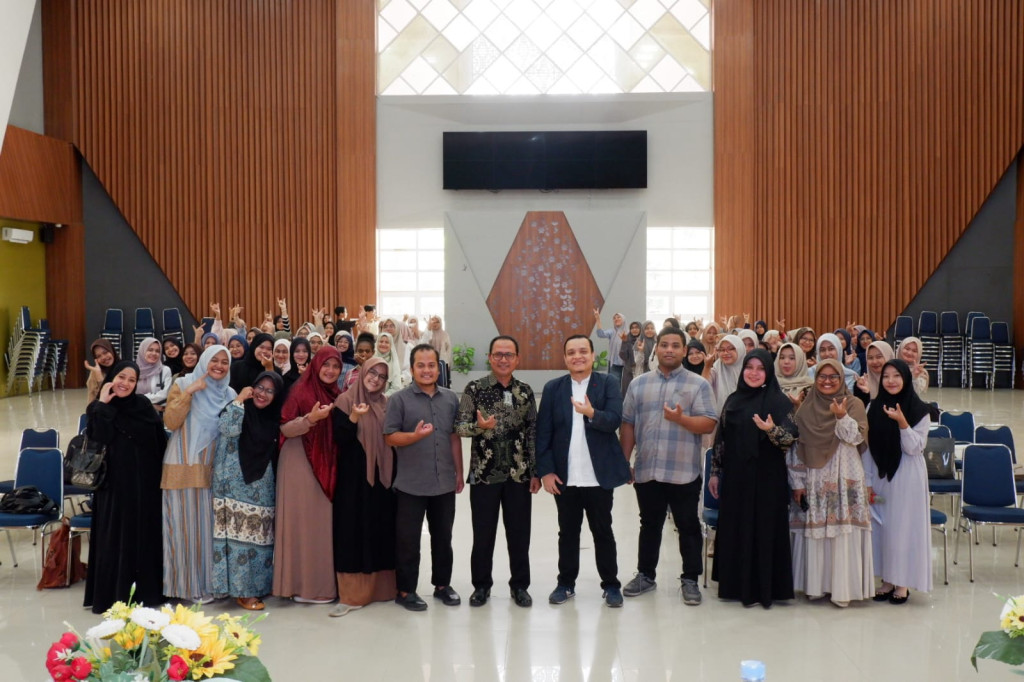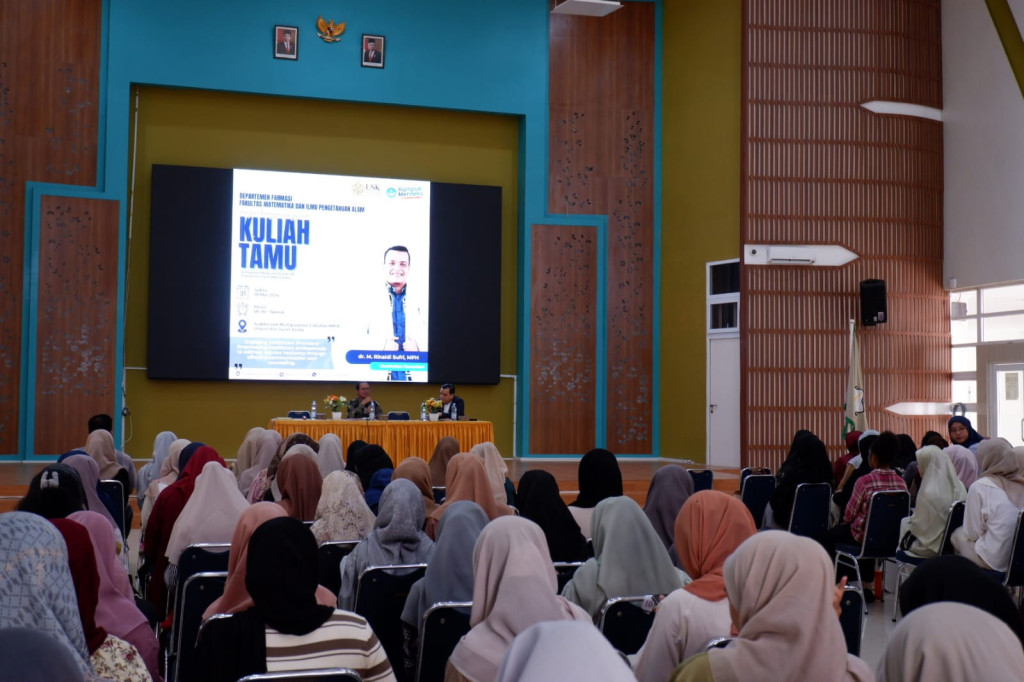
Banda Aceh, May 21, 2024 – Vaccine hesitancy, characterized by the delay in accepting or refusing vaccines despite the availability of vaccination services, poses a complex challenge to public health. To tackle this issue, the Department of Pharmacy, FMIPA Universitas Syiah Kuala (USK) hosted a guest lecture, Engaging Healthcare Providers: Empowering Healthcare Professionals to Address Vaccine Hesitancy through Effective Communication and Counseling. The guest lecture event was opened by Dr. Nasrullah Zaini, S.Si., M.Si., M.Sc., the Vice Dean of Academic Affairs, and delivered by Dr. M. Rinaldi Sufri, MPH, a vaccination consultant and travel medicine advisor, currently working at the Class I Health Quarantine Office in Banda Aceh. He is also a practicing at Apotek Puleh, Batoh.

Dr. Rinaldi, who holds a master’s degree in Public Health specializing in Health Promotion and Behavior from Curtin University in Australia, discussed various factors contributing to vaccine hesitancy. These include misinformation, distrust in the healthcare system, cultural and religious beliefs, fear of side effects, personal experiences, and anecdotal stories.
- Effective Education and Communication: It is crucial to provide clear, accurate, and evidence-based information about the benefits and risks of vaccines. Various communication channels, including social media, are essential for disseminating correct information and directly addressing myths and misunderstandings.
- Building Trust: It is vital to establish a transparent and empathetic relationship with patients. Engaging with community leaders and influencers to support vaccination can also enhance trust and acceptance.
- Personalized Approach: Understanding individual concerns and beliefs allows healthcare providers to tailor information accordingly. Maintaining patience and respect during discussions helps in addressing specific worries effectively.
- Improving Accessibility: Reducing logistical barriers such as transportation and cost and offering flexible clinic hours can make vaccines more accessible to the public.
- Community Engagement: Conducting outreach programs to educate the public about the importance of vaccines and collaborating with local organizations to reach a wider audience is crucial.
- Professional Training: It is necessary to ensure that healthcare professionals are trained in effective communication techniques and cultural competence and to keep them updated with the latest vaccine research and guidelines.
- Utilizing Technology: Implementing reminder and follow-up systems to notify individuals about upcoming vaccinations and using electronic health records to identify and follow up with patients who miss vaccinations can improve adherence.
Dr. Rinaldi emphasized that healthcare providers can significantly reduce vaccine hesitancy and increase vaccination rates through education, effective communication, and community collaboration. These strategies are crucial to safeguarding public health and preventing outbreaks of vaccine-preventable diseases.

